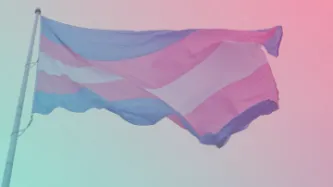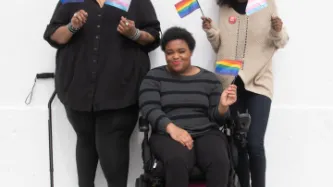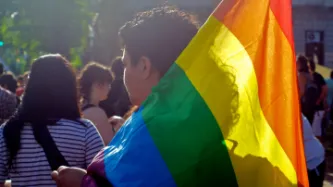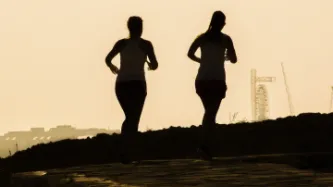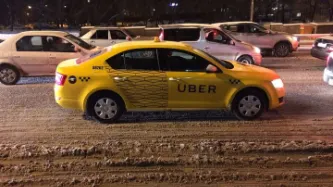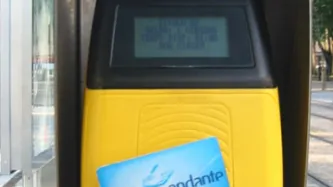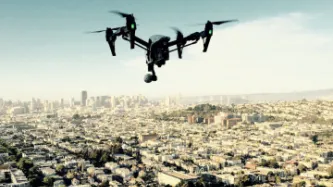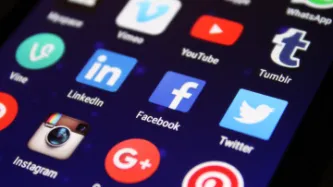Search
Content type: Video
Links:
Our report in English
Our report in Spanish
You can listen and subscribe to the podcast where ever you normally find your podcasts:
Spotify
Apple podcasts
Google podcasts
Castbox
Overcast
Pocket Casts
Peertube
Youtube
Stitcher
And more...
Content type: Long Read
This report is available in English.
La mayoría de los documentos nacionales de identidad y demás documentos emitidos por autoridades estatales incluyen un marcador de género. Estos marcadores suelen recibir el nombre de “marcador de sexo” aunque este término no sea preciso. La presencia de dichos marcadores, especialmente en los certificados de nacimiento, promueve el énfasis de nuestra sociedad en el género como criterio de asignación de identidades, roles y responsabilidades sociales. Al…
Content type: Long Read
Este informe está disponible en español.
Most national ID or identifying documents include a gender marker. This is often known as a 'sex marker,' even though the term is inaccurate. The presence of such markers, especially on birth certificates, contribute to our society’s emphasis on gender as a criterion for assigning identities, roles and responsibilities within society. With gender being such a determining and dominant identifier, it puts it at the centre of so many arrays of our…
Content type: Examples
Eight days after instituting a gender-based quarantine schedule, Peruvian president Martin Vizcarra cancelled the measure two days before it was due to end. It had been met with a backlash from LGBTQ+ activists, who feared trans and binary people would face increasing street harassment from police. However, it also proved that because women do a disproportionate share of domestic work, gender separation forced them to gather in large groups on the days they were allowed out. Instead…
Content type: Advocacy
TEDIC, InternetLab, Derechos Digitales, la Fundación Karisma, Dejusticia, la Asociación por los Derechos Civiles y Privacy International acogen el llamado de la Relatoría Especial sobre Derechos Económicos, Sociales, Culturales y Ambientales (DESCA) de la Comisión Interamericana de Derechos Humanos (CIDH) de enviar información para la elaboración del Informe Anual sobre DESCA del año 2019, que se presentará ante la Organización de los Estados Americanos (OEA) en 2020.
El objeto de este…
Content type: Advocacy
TEDIC, InternetLab, Derechos Digitales, Fundación Karisma, Dejusticia, Asociación por los Derechos Civiles and Privacy International welcome the call made by the Special Rapporteurship on Economic, Social, Cultural and Environmental Rights (ESCER) of the Inter-American Commission on Human Rights (IACHR) to inform the preparation of the Annual Report of the ESCER for the year 2019, which will be presented to the Organization of American States (OAS) during 2020.
This submission aims to outline…
Content type: Case Study
Discriminatory laws on the basis of sexual orientation across the globe exist in stark opposition to the principle that the law should be the same for each and every one of us. We are all entitled to the same protections against any discrimination. Equality before the law dictates that there must be a reasonable justification to regulate any aspect of a person’s life.
Laws discriminating on the basis of sexual orientation interfere with our private lives and development. There can be no…
Content type: Case Study
Every one of us has an expectation to be legally protected in the same way, to have access to the same human rights, and to be able to defend those rights in court.
However, for trans and non-binary people, this has not always been the case – and in many places around the world it still isn’t the case. The lack of legal recognition for their gender has had significant consequences.
If the law does not recognise you as the person that you are and treats you as someone you are not then you…
Content type: News & Analysis
Earlier this month, Brunei attracted international condemnation for a new law that will make gay sex punishable by death. While this is clearly abhorrent, Brunei is not the only country with explicit anti-gay laws.
Homosexuality is criminalised in over 70 countries around the world. And even in countries where gay sex is legal, such as the US, the LGBTIQ+ community still faces discriminatory surveillance and profiling by law enforcement agencies.
Through using the Internet and mobile apps,…
Content type: News & Analysis
Creative Commons Photo Credit: Source
In this first episode of the Gender and Privacy Series, we go to Manila in the Philippines to meet two transgender right activists - Naomi Fontanos and AR Arcon. We discuss what the right to privacy means to them and their fight against the government's plan to deploy an ID card system.
Listen to the podcast here.
Content type: Long Read
The Privacy International Network is celebrating Data Privacy Week, where we’ll be talking about how trends in surveillance and data exploitation are increasingly affecting our right to privacy. Join the conversation on Twitter using #dataprivacyweek.
It is often communities who are already the most marginalised who are at risk because of the privacy invasions of data-intensive systems. Across the globe, we see the dangers of identity systems; the harms of online violence against women and the…
Content type: News & Analysis
Written by Karisma Foundation
7:03: Catalina leaves her apartment and a security camera follows her down the hall, another one observes her in the elevator while she fixes her hair. As she exits the building, the warden tells her she doesn’t have to fix her hair because she is already pretty as she is. She gets to the parking lot where another two cameras look at her while she gets into her car.
8:00: She is heading to an open data workshop organized by the Colombian government in a…
Content type: News & Analysis
Written by Privacy International
07:06: Camille’s smart pillow sends a signal to her smartphone that it’s time for her to wake up. She checks the quality of sleep on the app – last night was not great. Because the pillow tracks the motion in her bed, the company knows what else she may (or may not) have been up to. But the company doesn’t just track her when she is in bed. By downloading the app, Camille has also authorised access to her location wherever she goes, her camera, her contact…
Content type: News & Analysis
Written by the Foundation for Media Alternatives
7:01: Naomi wakes up and gets ready for the day.
7:58: Naomi books an Uber ride to Bonifacio Global City (BGC), where she has a meeting. She pays with her credit card. While Naomi is waiting for her Uber, she googles restaurant options for her dinner meeting in Ortigas.
9:00: While her Uber ride is stuck in traffic on EDSA (a limited access highway circling Manilla), Naomi’s phone automatically connects to the free WiFi offered by the…
Content type: News & Analysis
Written by Datos Protegidos
04:16: Carolina can´t sleep. She grabs her mobile from the nightstand next to her bed to check her WhatsApp notifications and read some tweets. She decides to disconnect to and tries to go back to sleep.
07:00: Carolina is woken by her mobile phone alarm. She picks it up and checks her social networks and messages again. To her astonishment, she finds a message in a WhatsApp group from her former college classmate Pablo at 5:25 asking if anyone was still…
Content type: News & Analysis
Written by Derechos Digitales
03:00: Maritza wakes up and gets ready. It’s still dark. She has to go stand in a queue outside the nearest grocery store, where after several hours her fingerprint will be scanned to retrieve her personal information from a governmental database. This will tell the cashier not only her address, full name and phone number, but also if she already bought her allotted ration of food that month. If so, she will be sent back empty-handed. There are drones flying…
Content type: News & Analysis
Written by the National Coalition for Human Rights Defenders - Kenya and Privacy International
05:00: Mercy’s alarm goes off. She gets out of the warmth of the bed into the piercing morning chill. She switches on the bedside lamp and reaches for her Bible. She then checks in onto her devotional group on Facebook, as she does every morning. Her Facebook app keeps track of her location, and the time she wakes up.
05:24: She steps into the shower and prepares for her day in the…
Content type: News & Analysis
Written by Privacy International
08:27: Jen gets on the London Underground to go to work. She uses her contactless debit card to pay for the tube, so Transport for London knows where she is travelling to and from and her bank knows when she takes the tube.
08:36: The public WiFi on the tube means that even when Jen doesn’t connect to it, her every step inside the underground is tracked. The data will eventually be sold to advertisers.
08:58: Jen arrives at work. As with all the lower…

